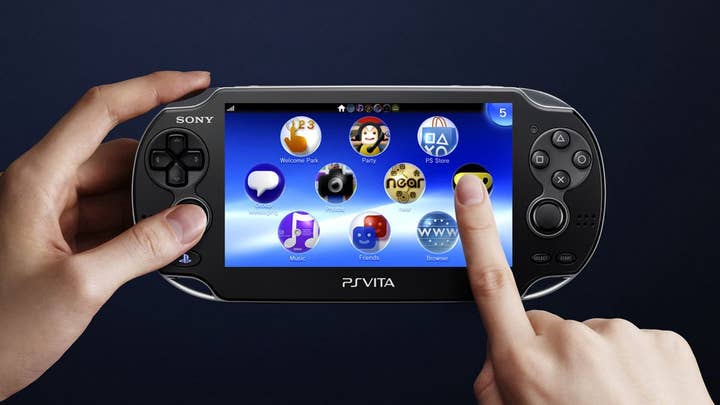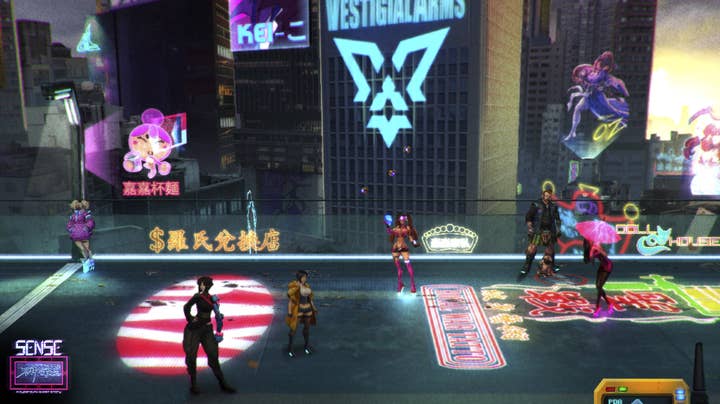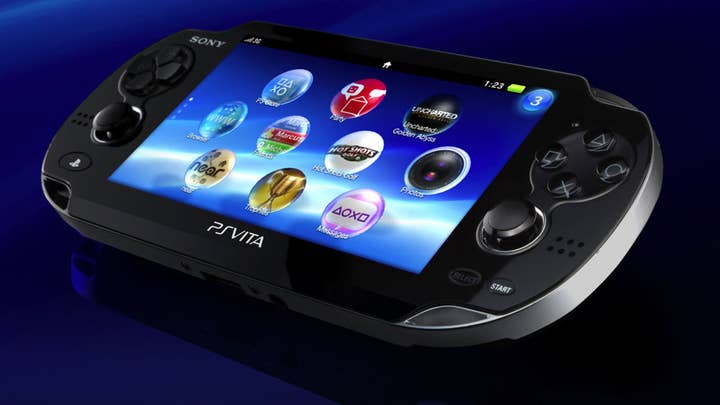The developers that supported the PlayStation Vita until the very end
Studios still publishing games for the handheld in 2021 discuss the die-hard community that kept it alive long after Sony dropped support
Kickstarter and GoFundMe campaigns are commonplace in the gaming industry, though rarely are those campaigns responsible for sustaining an entire console platform.
That has been the case with Sony's PlayStation Vita, gaming's most tragic handheld device. Dedicated developers and publishers kept the console alive until the very end, with Sony putting the final nail in the Vita's coffin on July 20, 2021.
"It meant a lot to us... to deliver games which were aimed at making people happy rather than selling millions of copies on the platform." says Joseph Brown from Top Hat Studios, when talking about the work they've done porting multiple titles to the PS Vita. "For us it means showing gamers that we genuinely care about the community and about fans."
Top Hat Studios has been developing Vita ports for years -- such as LAZR, Synergia, Hyper Team Recon -- because "they keep wanting to give back to those who supported them". It's a platform made unique by its fans.
"The PS Vita has a great community associated with it, and one which is very active"
Andi Han, Top Hat Studios
"The PS Vita has a great community associated with it, and one which is very active," says Andi Han from Top Hat Studios. "Unlike some other platforms where games just come and go, the PS Vita has a fun ecosystem where games mean something to the community when they launch, and generally stay in memory because of their accessibility on the console. This is pretty rare in today's industry."
Han isn't wrong about how much PS Vita developers care about their fans; that community has been part of the reason for multiple games launching at all, as was the case with Benjamin Widdowson of Suzaku, developer behind Sense: A Cyberpunk Ghost Story, which was recently released on the console in 2020. "So many people said the platform was dead and frankly, without the 'Vita Island' people, Sense may not have been able to meet our Kickstarter goal."
'Vita Island' is a term used to reference the PS Vita community, and the console's most diehard fans, a reference to how separate it is from the community around the other gaming platforms. In fact, Suzaku's love for the Vita is part of the reason it chose to release the game on the seemingly dormant device.
"It's just a cool feeling having a physical copy of a game I made in my hands. Growing up with PlayStation and being one of the three people at my local GameStop who waited in line at midnight for a Vita, it's even cooler...being able to do this one time was amazing."
Although Suzaku couldn't have known it, Sense: A Cyberpunk Ghost Story will remain the only time he will see his work on PS Vita, since July 20th 2021 was the final day to submit a game for certification and eventual release on the PS Vita PSN Store. Even though the store itself will stay up in perpetuity, developers will no longer be able to release new titles on the digital storefront.
The decision to close the PS Vita, PS3 and PSP storefronts -- which was quickly reversed, at least for the most part -- came as a surprise to many around the industry.

However it wasn't surprising news for everyone; Brown said "the writing has definitely been on the wall for a while now," and UnMetal developer Francisco Tellez de Meneses, said he was made aware of the decision by Sony a year before it happened.
"That's the reason UnMetal has been published on PS Vita before anything else: there was a deadline," he tells us. "I could not say anything, and I had to stop whatever I was doing on the game to focus on the port for PS Vita. In fact, the game had to be finished, pass the Sony Quality Control and be fully approved before the end of 2020. That really scrambled my plans and even made me lose a great publisher."
"If developers could create physical PS Vita games on their own, the console would be alive for many years"
Francisco Tellez de Meneses, developer of UnMetal
Survival game UnMetal is now available for the PS Vita, but many developers haven't been so lucky. Lillymo Games has released three games for the PS Vita, but while its next two projects were also set to come to the handheld, the PS Vita versions have since been cancelled. And yet Sony still allowed the team to purchase a development kit earlier this year, weeks before the first announcement of the digital store closures.
The PS Vita has been sustained primarily by its community for most of its life, and there was a reason people latched on in the first place. Its position as the PSP's successor at the time of release was enough to build up a great deal of excitement around the console, and even despite its pricing issues it was able to impress players enough to stick around once they had bought in -- and developers noticed.
"I think as a whole it did more good for Japanese developers and indies than Western or AAA devs; we saw that clearly reflected with the software library," said Widdowson. "For indies, I think having a very powerful handheld device to port our games onto moved indies away from niche or experimental games to more traditional or mainstream experiences. I think it also widened the appeal of indie games to a lot of markets and particularly Japan."
While the Nintendo Switch stands as today's indie platform of choice, the PS Vita's OLED screen was where many indie classics first launched and found an audience. Guacamelee, for example, is now a popular indie franchise after the original game's success, which led to a well received sequel five years later in 2018.
Sony was very indie-focused during the PS Vita's early years, but once that started shifting with the rise of the PS4, support for the PS Vita began to dry up. When Sony announced they would be stopping development on first-party PS Vita games in 2015, it felt like Sony had given up on supporting the platform at all, especially to the developers still working on the console.
"It's [support is] already gone. It's already been years since the store was refreshed," says Thomas Altenburger, developer at Flying Oak Games, the team behind recent Vita release Scourgebringer.

Altenburger is very aware that the Vita store's 'new releases' page is frozen in the past, which heavily reflects sales. For him, it's not even clear as to why Sony is leaving the store open at all.
The decision to overturn the closure came after fans had expressed their disappointment in the closure, at which point Sony decided to leave the PS3 and PS Vita stores open while maintaining the closure of the PSP store.
"It's a token of appreciation to a community who never let it go against all odds"
Thomas Altenburger, Flying Oak Games
"There was a known deadline for certification, and with the store not being refreshed, nor animated with new events or sales, it's pretty much gone," says Altenburger. "The fact that Sony preserves purchases doesn't seem to make much sense in this context -- I believe that it's mostly a public image move to keep it online."
Of course, removing the store would have consequences, whether or not new games can be released on it. There are a bevy of digital titles that would be entirely lost without still existing on the store, and their loss would be a massive blow to the video game preservation effort. Not only that, but as Altenburger points out, these games would be in a position many older titles now find themselves in: stuck in a state in which they can't be released or played again legally.
"If developers could create physical PS Vita games on their own, the console would be alive for many years" says De Meneses, "but as far as I know, that isn't the case... it's hard to predict how long it's going to last."
This wouldn't be as big of an issue, of course, if Sony had some sort of preservation solution. Although emulation is a popular way through which fans enjoy old inaccessible retro games, it's not a real solution in any way.
"We see many players requesting that developers make their games available for the machine as a self-hosted download once the store has closed," says Altenburger, "but what players don't see is that this would literally breach every possible agreement that developers have with Sony, throwing them into legal issues and jeopardizing developers capabilities to make any more games. I don't think that anyone will take this risk."
The PS Vita will always be remembered by its fans, but also by the developers who poured themselves into this device for the community. "Besides being a great handheld and powerful console with a nice screen, it is the community itself that makes for me the Vita what it is," says De Meneses.
"It reminds me of the MSX community: a group of such strong followers and people loving this console and keeping it alive."
For Joseph Brown, it's the role the handheld played during its time in the industry. "The Vita was important because it was a platform which was almost entirely and solely community-driven; something which hasn't really existed in the indie scene for a long time. The connection between publishers/developers and fans on the PS Vita was a unique thing, and I think something which is very worthy of appreciation."
Thomas Altenburger, however, best sums up the Vita and why it's worth remembering, when asked why Flying Oak Games released a PS Vita game in 2021 in the first place. Besides the challenge that was to even bring the game to the Vita, and being able to utilize the handheld's features for a unique gameplay experience, there was one core reason.
"It's a token of appreciation to a community who never let it go against all odds."








